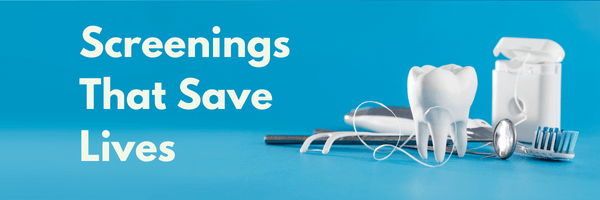
The Pros and Cons of Dental Job Searching
Posted August 15, 2022
At some point in our lives, we all experience the desire to leave our job in search of better opportunities. In 2022 alone, it is expected that one in five workers globally plans to leave their job, thus creating a record movement that coined the name “The Great Resignation.”
A survey published in the Journal of Dental Hygiene stated that 8% of dental hygienists left the dental industry since the onset of the pandemic. DentalPost’s 2022 salary survey found that 17% of dental hygienists, 27% of dental assistants, 15% of dental practice managers, 32% of dental billing specialists, and 31.5% of general front office staff members planned to apply for one or more new jobs within 12 months.
While most people seek a higher salary, over two-thirds of job-seeking workers in the United States also seek more fulfillment. DentalPost’s recent blog, Dental Job Market Update: Increase Employee Engagement & Retention, looks at the generational differences. For example, our youngest workers are eager to have mentorship on the job, and millennials are driven to find more equitable pay and benefits. All generations are most engaged in their jobs when their work gives them a true sense of purpose.
The Importance of Knowing Your Why
Your reasons for seeking a new job may be based on needs such as the need for more income or a family move to a new location. You may be driven for reasons related to your well-being, such as a desire to leave a stressful work environment or a desire to spread your wings and meet new challenges. And you may have multiple desires, such as more equitable pay, employee benefits, and respect and appreciation.
As you explore job postings, apply for jobs, and interview for them, you will make many choices during the process. There are so many jobs open now that you may find multiple opportunities in any given community. If this is the case in a community you want to work in, you will make choices among them as you screen job postings for your shortlist, take the effort to apply to them, and interview for them. You may even find yourself second-guessing your compatibility with an open position as you ride the waves of hope and anticipation, discovering truths about yourself, uncovering truths about the new jobs, and weighing your options.
The intentional weighing of options to come to a high-reward, low-risk decision requires that we understand our reasons (our whys) for making a job change – and often understand which reasons are our true priorities.
Imagine This Scenario
Let’s say you make an above-average pay rate in your community. Still, your boss is emotionally abusive, and you are never scheduled enough time to perform the highest standard of care for your patients. Providing the highest standard of care is so important to you that you have started to look at job postings.
As you read those job postings, you wonder if the new dentist will be respectful, if you will have sufficient time with each patient, and if the pay rate will be as much or more as you are making.
When you start communicating with hirers to learn more, information starts flowing, and you decide to move to the interview stage, you will likely experience heightened emotions. And if you find all your desires cannot be met, the hardest part of deciding kicks in…
Now you must seriously weigh the pros and cons. When “the rubber meets the road,” how do you weigh your emotional well-being against your financial stability? Are the emotional abuse and compromised standard of care tolerable enough to keep your high-paying salary, or is it time to move on?
Practical Reasons to Leave
With the demand for dental hygienists and assistants at an all-time high, better pay opportunities and benefits are hard to ignore. Dental hygienists and dental assistants are among the most recruited professionals. According to a report from the American Dental Association, 33.1% of dental practices were recruiting dental hygienists in March of 2022 alone.
Dental offices have started offering pay above the average rate, flexibility with working days and hours, and benefits they have not previously offered. This type of competition leaves dental professionals with a wide variety of job offers to choose from.
Examples of Practical Reasons
- You need higher pay to meet the rising cost of living.
- You are a solo-income family and need health benefits.
- You are moving out of town.
- You have completed a higher level of education and want to leverage your knowledge and skills more fully.
- Your commute is too long.
Practical Reasons to Stay
We can’t ignore the emotional ramifications of money. Circling back to the sample scenario above, how would you feel emotionally if you took a new position where you earn less than you earn now? Even if you can live on less, will it feel like you have been demoted? Will you feel unappreciated? Given rising wages, will you regret not holding out for another opportunity that pays more coming along? Again, it is a case of knowing your priorities and being brutally honest with yourself.
Examples of Practical Reasons
- A reduction in income will negatively impact your standard of living.
- You need the benefits you receive.
- The commute to the new job will take too much time.
Emotional Reasons to Leave
It is never a good idea to make a rash decision when quitting your job. Everyone can have a bad day, a bad week, or even a bad couple of months at work. It is important not to make a rash decision and weigh the pros and cons of staying vs. leaving. Do your research and search for potential openings in your area that may be a good fit or a better opportunity for your career.
For some professionals, a toxic work environment with either an aggressive boss or cliques and exclusions with coworkers can drive them to leave their current job. For others, it may be a desire to find more of a work/life balance that leads them to look for better fitting opportunities for their families or hobbies. No matter the emotional reason for leaving your job, finding fulfillment in another office is possible with the right research and preparation. There are also numerous opportunities outside clinical dentistry, such as sales representatives, education, insurance, or writing that can align with your career and personal goals.
Examples of Emotional Reasons
- Burnout
- Toxic work environment
- Work/life balance
- Lack of fulfillment
As you reflect on your emotions, remember that making a rash decision about quitting your job is never a good idea. Everyone can have a bad day, a bad week, or even a bad couple of months at work. Do your research and search for potential openings in your area that may be a good fit or a better opportunity for your career. Then, still, be thoughtful to minimize the risk of regret.
Emotional Reasons to Stay
DentalPost’s 2022 job satisfaction survey found that dental professionals like specific aspects of their work the most. Their top two likes are their relationships with their patients and the ability to fully use their skills. If you are like most other dental professionals, these matter to you as well.
Weigh the value of the trust and appreciation you have created with the patients you currently serve and how much you will miss those relationships if you move on.
Consider the level of trust and autonomy you have earned. How long might it take to earn that level of trust and autonomy again?
Do you enjoy going to work every day because of your current work environment? Will you miss that if you leave?
Examples of Emotional Reasons
- Earned patient trust and appreciation
- Earned team trust and appreciation
- Ability to fully utilize your skills
- The great culture
Dental Job Searching Is an Enlightening, Often Energizing Process
Researching new offices and companies you might want to work at can be thrilling. Whether or not you decide to apply for and accept a new position, you can still count on the job searching process to help you better define your sense of purpose.
- No two dental offices are the same. Whether it’s their mission statement, policies, technology, benefits, schedules, or communication style, you are likely to learn about innovative approaches to the practice of dentistry.
- You will gain new perspectives and a larger context for envisioning and framing your preferred future.
- While determining the pros and cons of an opportunity, you will come face to face with considering what is important to you at this time in your life.
Dental Job Interviewing Is Another Growth Process
Becoming confident with interviewing takes time and practice. Interviewing at multiple offices during the job search can help you master the art of achieving a great first impression. Learning from your mistakes and what you could have done differently is a great learning experience for future job interviews.
The anticipation of finding a wonderful opportunity that meets the goals you have set for yourself can be elating. A low emotional point may come if you do not make the offer you want at the practice you want most. Currently, disappointments are few because the shortage of dental hygienists and dental assistants has resulted in them receiving multiple offers if they apply to multiple open positions.
Final Notes On Dental Job Searching
If you decide to take a new job, communicating that you are leaving your current employer, team, and patients will also bring up emotions to navigate. In my next blog, I will write about ways to make that easier.
Because the labor market is currently in your favor, dental professionals are finding options that satisfy their reasons to make a change.
We connect and educate more than 900,000 job seekers in the U.S. and Canada to build better places to work through teams that excel.




.png)



.png)
